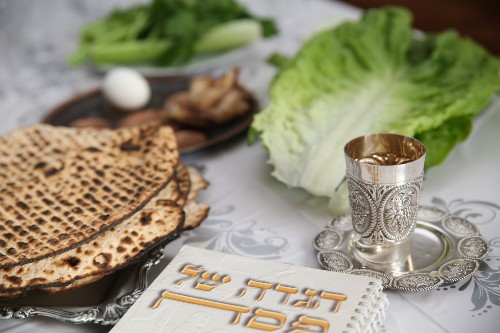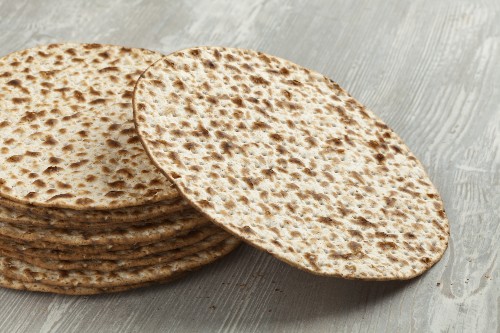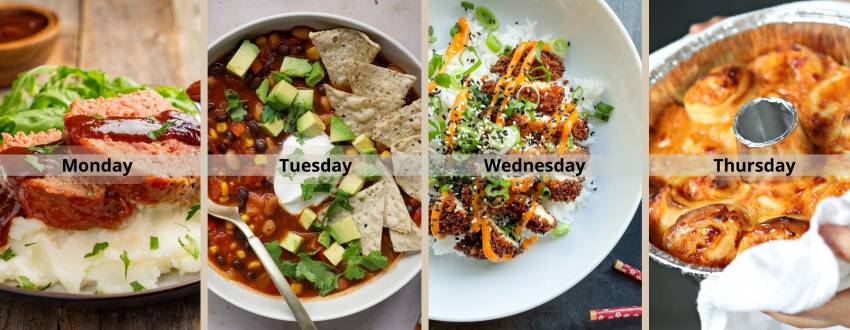By Mussy Raitman and Rorie Weisberg
As a health coach, what is one of the questions you are most frequently asked at this time of the year?
By far, “What is the best matzo to eat?”
And what do you usually answer?
The word ‘best’ is relative. It really depends on a person’s issues. Generally, when it comes to anyone with a digestive problem, metabolic issue, blood sugar issue or sensitivity to carb load, I would highly recommend using spelt matzo.
Is spelt your preferred grain in general?
Yes, I love spelt in all forms. I love it in challah and even more so in my sourdough rolls. I find spelt to be a much easier grain to digest as it is lower in gluten (though not gluten-free) and made from very delicate flour.
Do you see the difference when baking with it?
As someone who bakes with sourdough, I know that when working with spelt flour it’s important not to overwork or over-shape your dough or else it compromises the outcome. Whereas when baking with regular wheat, you can be really tough with it – the more you work and play with it, the better it comes out.
Our bodies mirror this reaction; it takes a lot of hard work for our bodies to break down the wheat.

Sounds like spelt is the easiest grain to digest.
Right, it doesn’t need that much digestion to break it down. Typically people who switch over from wheat to spelt feel less tired and heavy. For people with digestive issues, they usually see a huge difference when they make the switch.
What type of matzo do you eat?
I find the organic spelt shemurah matzo is usually the thinnest and easiest to digest. I recommend going to the store, and literally feeling the weight of the box. This year I found the brown box that was made by Papa to be light and thin, and I’m really excited to enjoy it over Pesach.
There’s always lots of confusion with how much matzo you have to consume.
The shiur (halachically mandated amount) of matzo goes by volume size, not weight. It’s visual; you measure a third of a matzo by eyeballing it. It doesn’t matter whether the matzo is thin or thick, it’s still the same amount.
That’s why I recommend looking for matzo that’s thinner. It’s going to be much lighter because you’re eating less. You’re in essence eating less per serving.

Are there options for people with celiac?
There are five grains that are considered bread (that you can wash and bentch on): wheat, rye, spelt, barley, and oats. The only one of those grains that is not gluten is oats. Most people with celiac tend to stick to oat matzo.
Do you like oat matzo?
Oat matzo tends to be really thick and very heavy on your system; you feel it more, whereas spelt feels much lighter. That’s why if someone is just sensitive to gluten or has sensitivity to wheat, I would suggest using spelt. It’s lower in gluten and it’s lighter.
Sounds like something everyone has to experiment for themselves.
Some people think oat matzo tastes excellent. I feel like every year it tastes a little bit different (it’s better when you toast it).
I ate oat matzo for many years, thinking that it would be the best thing to digest because I try to stick to a gluten-free diet, but I never felt good with it. Then one year I was suggested to try spelt, and I felt so much better.
Since then, I started eating spelt flour more often. Fermented spelt in sourdough is still my top choice, but obviously not on Pesach because the fermenting process is chametz in its original form. Still, I find spelt matzo to be the best option for most people.
Any last thoughts?
I think it’s important that people ask their rabbis if someone has a health-related issue. There are so many different cases with health issues, and each one has its own halachic ruling. If you don’t feel well eating the standard amounts of matzo and kiddush, please ask a shaila.





